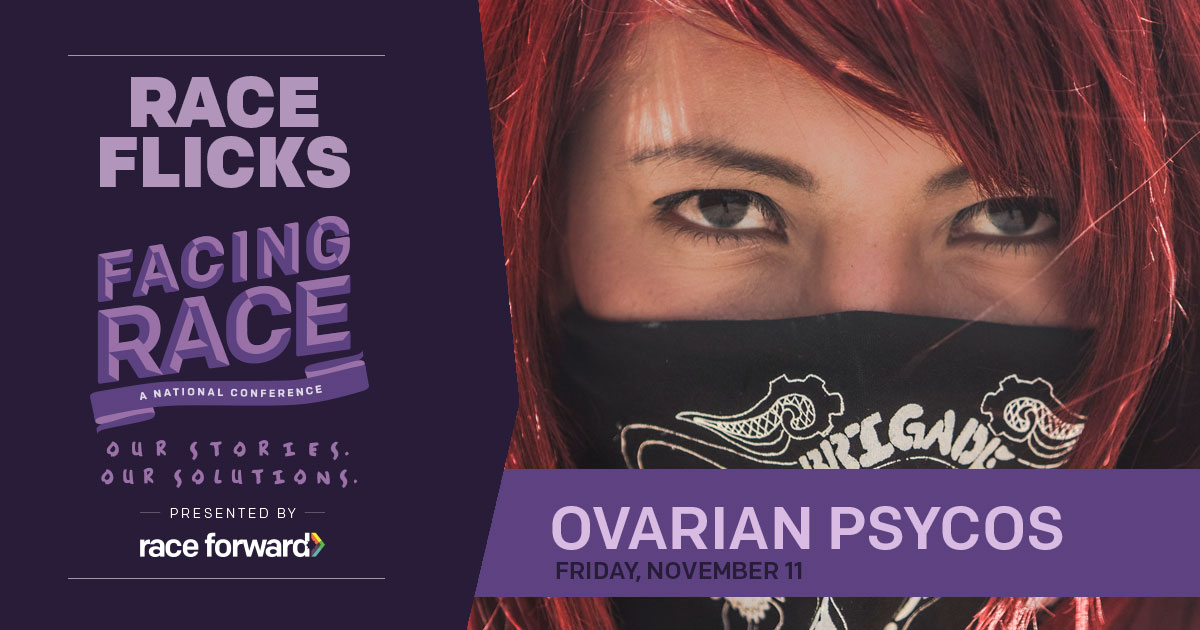Storytelling is one of the most powerful tools in any activist’s arsenal. Statistics, no matter how stark, don’t spark revolution. Most readers’ eyes would glaze over reading that a Flint, MI resident’s tap water contained 104 parts per billion of lead, nearly seven times greater than the EPA limit — but once we began to see the faces of Flint’s children, once we heard their parents recount the physical pain and mental challenges they’ve suffered since an unelected emergency manager contaminated their water supply, Americans were outraged and began demanding solutions.
The “Race Flicks” series, which has been a regular part of the Facing Race conference, is curated this year in partnership with Working Films, a national leader in using documentary to advance social and environmental justice. Over the course of two days, seven dynamic film screenings exploring issues of race, gender, class, nationality, criminal justice, and more will be followed by interactive discussions with documentarians, characters featured in the films, and activists and organizations impacted by the docs’ subject matter. Audiences will have the opportunity to engage not only as viewers but as organizers, helping filmmakers understand how these films can best be brought into communities to incite change:
- Ovarian Psychos by Joanna Sokolowski, Kate Trumbull-LaValle
- Olympic Pride, American Prejudice by Deborah Riley Draper
- America Divided: The Class Divide by Richard Rowley, Rebecca Teitel, Jesse Williams
- The Conversation: A series of short films about race in America by Michèle Stephenson
- First Light by Adam Mazo & Ben Pender-Cudlip
- Last Day of Freedom by Dee Hibbert-Jones & Nomi Talisman
- Breathin’: the Eddy Zheng Story by Ben Whang
Working Films’ co-director Molly Murphy gives Colorlines a sneak peek into this robust program (trailers for the films below):
Jennifer L. Pozner: As a media literacy educator and media activist, I’m thrilled that Race Flicks is harnessing the power of film-as-change-agent. What is your vision for this track?
Molly Murphy:
We gravitate towards media content that is just as beautiful and compelling as it is informative and factual. We want to showcase the highest caliber of filmmaking, and equip audiences with films that are great resources for outreach or for advocacy. These are solution-focused films that highlight personal resilience and strategic tactics to address issues of race in society, from women building community and power on their bicycles in Ovarian Psychos, to First Light’s Truth and Reconciliation Commission in Maine that recognize what had been happening to Native families within the child welfare system. We also wanted to do a shorts block because they allow more time to connect with each other on the spot. The shorts are stellar — for example, the NYTimes op-doc The Conversation, the beautiful animation The Last Day of Freedom — can be used to take action online and off.
{{pullquote:1:right}}Pozner: How does that change-making happen?
Murphy: It’s dynamic. Documentary can shift personal perspective. It’s also a convener. Media is a catalyst — {{pullquote}}content plus intent equals change{{/pullquote}}. If you bring people together for a screening or an in-house to focus on a specific issue, think intentionally about who is impacted, who needs to see this, and why. The programs after each film will showcase practical strategies around how the films have been used in a variety of settings, outline what the goals were, the desired outcomes, and what the process was to use the film to advance racial justice and inspire and influence change.
A great example of impact is how Deborah Riley Draper’s Olympic Pride, American Prejudice helped lead the White House to recognize the 18 African American Olympians who defied Jim Crow and Nazism at the 1936 Games in Berlin.
Pozner: As the curator, what excites you most about Race Flicks this year?
Murphy: As the largest gathering of people working for racial justice, who are in a position to utilize stories in their work, this is one way to access some of the best storytelling out there. Everyone featured in the talkbacks is working to address institutional racism and dismantle white supremacy in their communities and in places where decisions are made. People in the films themselves are activists and can talk about their personal perspectives and experiences, about their community work, and how they can utilize film as a resource to meet their goals.
Most of these films are relatively new, so what excites me is what comes next? We want to tap the audience’s expertise as organizers to inform how these new films can make an impact in their communities. What are the practical applications of these stories in their work for racial and social justice? Once the amazing leaders that gather at Facing Race see the films and take them back out into the world, what will that look like? That’s what’s exciting!
